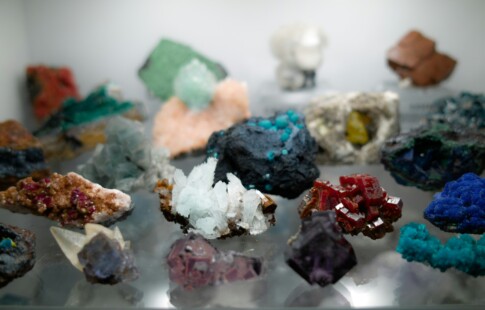
6 Interesting Facts About Solar Energy
We are reader-supported. When you buy through links on our site, we may earn affiliate commission.
Last year, fossil fuels accounted for roughly 80% of total U.S. energy consumption and 5.13 billion metric tons of carbon emissions. Ultimately, these greenhouse gases increased pollution and exacerbated climate change. This year, however, renewable technologies grew by 7%, despite a 5% drop in global energy demand and solar is currently enjoying a huge spike in popularity. As solar systems and sun farms continue to sprout up across the country, it may be beneficial to learn more about them. Here are a few interesting facts about solar energy you may not have known about those sunny black panels.
1. Solar Panels Are Old News
Most people consider solar energy to be a relatively new discovery. However, solar technology has actually been around since 1839, when a French physicist observed the photovoltaic effect. A few decades later, inventors began registering patents for solar-powered devices. By 1941, the first commercial panels were hitting the market and the rest is, well, history.
Since then, engineers and scientists have been working to improve panels and their efficiency. Now, the government is investing in solar research and development and incentivizing renewable energy with tax credits. Although solar only accounts for just 2.6% of U.S. power generation, it has grown by almost 43 times in the past 10 years, signaling a bright future for renewables.
2. You Can Sell Solar To Energy Companies
Embracing solar can come with a big payoff. If you end up with excess solar power, you can sell excess it to your local power grid in return for credits and savings. Small businesses and homeowners can exchange one megawatt of solar power for one renewable energy credit, which they can use to pay utility bills. Depending on your location and the size of your system, making the switch to solar could save you $47 to $143 each month.
Most states allow for some kind of net metering, which enables you to receive checks for the excess energy you send to the grid. However, rules and rates can vary from state to state. Therefore, if you’d like to begin selling power, it’s best to contact your local utility company for details.
3. California Leads the Nation in Solar
Solar power is gaining popularity all over the U.S., but California has probably been the most willing to embrace it. An analysis of data from the U.S. Census and the Solar Energy Industries Association reveals that the sunshine state leads the nation at 44.92% of all homes having solar power. As a result, solar PV and thermal power account for more than 14% of the state’s energy.
Unsurprisingly, California has no plans to slow the expansion of solar power. In 2018, it even signed a bill requiring 50% of the state to rely on renewables by 2025 and 60% by 2030. Many residents believe officials will push for 100% zero-carbon electricity within the next 25 years.
4. Panels Still Work Under Cloudy Skies
Not everyone lives in a place where the sun is always shining — that’s why it’s important to know these interesting facts about solar energy. However, even the gloomiest states can benefit from solar panels because they still work under cloudy skies. Of course, PV systems generate the most power in direct sunlight, but they still create energy in the rain and snow.
In fact, these natural weather patterns are key to keeping the panels free of dust and dirt. They also prevent the buildup of air pollution. In places like India, where air pollution is a significant concern, the rains are a blessing. Otherwise, workers must dust off panels every few days. Pollution and dirt, then, are the main culprits behind inefficient solar systems, not clouds.
5. Solar is Cheaper Than Fossil Fuels
Recently, the International Energy Agency released its World Energy Outlook report, predicting 43% more solar output by 2040 than it expected two years ago. The agency points to lower prices as one main reason for solar’s exponential and unexpected growth.
For projects with low-cost financing, this means that solar PV is now the cheapest option of electricity in history. Moreover, solar is much more affordable than gas and coal. As a result, electricity generation from coal is structurally lower and most analysts agree that fuel will never recover from drops during the pandemic. Instead, renewables will likely overtake coal by 2025.
6. Not Everyone Supports Solar
As promising as solar might seem, some people still don’t support it. This past fall, a group of Native Americans spoke out against a solar project that would provide electricity to 50,000 homes in New York. Activists claimed the panels would hurt the environment and desecrate sacred land in the Genesee Valley. Unfortunately, finding land for solar farms can be a very real dilemma and slow the expansion of renewable energy.
Others have rejected solar under the misconception that it would suck energy from the sun, stop plants from growing and cause cancer. These concerns are entirely unfounded, however. Panels don’t steal sunlight and there are no negative health consequences to nearby communities. As more people learn how solar systems work, scientists believe that resistance will diminish.
Interesting Facts About Solar Energy
Solar power is here to stay. More importantly, it’s growing at an increasingly rapid rate. The more people can embrace it, the more quickly the world can transition from carbon-producing fossil fuels to eco-friendly renewables. So, if you love the planet, it’s time to start soaking up the sunshine.
Share on
Like what you read? Join other Environment.co readers!
Get the latest updates on our planet by subscribing to the Environment.co newsletter!
About the author

Jane Marsh
Starting from an early age, Jane Marsh loved all animals and became a budding environmentalist. Now, Jane works as the Editor-in-Chief of Environment.co where she covers topics related to climate policy, renewable energy, the food industry, and more.





